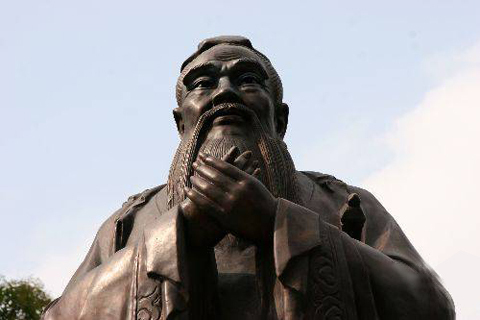
The East is a career,” writes Benjamin Disraeli in his 1847 masterpiece Tancred. The quote is short, but controversial. Was Disraeli dismissing an entire continent as a testing ground for young ambitious Western statesmen, as some have said? I prefer Edward Said’s interpretation of the quote, outlined in his influential 1978 masterwork Orientalism. Said took Disraeli to mean that, “to be interested in the East was something bright young Westerners would find to be an all-consuming passion.”
Since Deng Xiaoping initiated China’s reform and opening-up policies, millions of bright young European entrepreneurs, scholars, adventurers and language-lovers have flocked to China. I am by no means the brightest, nor youngest, of these trailblazers, but I too have felt an all-consuming passion to make a career out of the East, and in particular out of China.
There’s a reason for this – as China’s economic star has risen, its culture has been attracting more and more interest in Europe. Many Europeans now believe that the path out of Europe’s current malaise lies in adopting certain ideas outlined in China’s Confucian philosophy.
Lofty Pragmatism
Few people realize the great impact of Chinese thought on today’s Europe. Germany, for instance, is currently undergoing a de facto thought transformation away from philosophical idealism and Christian dogma toward a kind of lofty pragmatism that finds close parallels in Confucianism.
Germany still shies away from outward displays of its deep affection for the Far East – the ruling Christian Democratic Union under Chancellor Angela Merkel doesn’t even officially recognize “multiculturalism.” But sooner or later, Germans will realize the significant similarities in philosophy the two countries share.
To some extent this recognition will come from the increasing visibility of Chinese culture in Germany. The country has 28,000 Chinese students studying in its schools and universities, and is home to 13 Confucius Institutes, Chinese government-sponsored centers for the promotion of Chinese language and culture. And as long as China’s economy continues to be the engine of global economy growth, the country is unlikely to fall from the headlines of German business news media.
But at a more fundamental level, rather than China moving closer to Europe in the popular conscience, Europe has moved closer to China, and in particular, to Chinese philosophy. Over the past decade or so, Europe has embraced – unwittingly, perhaps – Confucian ideals in religion, education, philosophy and intellectual culture.
Europe is an increasingly secularized continent. Secularization is a European, not a broadly Western, phenomenon – just look at the strength of the Religious Right in the United States. Europe has drawn closer to Confucianism in how it approaches religious thought. Confucianism is not religion – neither is Buddhism, technically – but rather a code of conduct that aims to create a harmonious society. Creating a harmonious society is the goal of the Chinese government. New socialist Europe has the same goal, though it frames it rather differently as “aspiring to a peaceful and tranquil society.”
